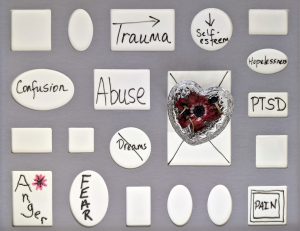By Nneka N’namdi and Fareeha Waheed
At the end of each year, Baltimoreans know how many neighbors we lost to homicide (333 in 2022). The number is a grim reminder of how Black life is devalued in our city and country. It is a tragic, brutal metric to underscore the multiple system failures that led to these untimely deaths.
Many of us knew someone who died behind a bullet. But there is another number that is almost three times higher yet garners very little attention in the media or public. That is the amount of deaths caused by overdoses in Baltimore.
Why don’t we know that number?
Perhaps it is because drug use remains shrouded in shame and stigma. We all know someone who is struggling with some form of addiction. It’s in all of our communities and most of our families. Today we recognize that addiction is a public health issue and mental health disorder. Yet unlike with other pandemics, we fail to muster empathy for those affected.
Throughout Baltimore’s history we’ve criminalized drug use, while knowing full well incarceration was not a cure. The result is a contrived “War on Drugs” that cost many lives and ruined countless others through mass incarceration. Now, we lose nearly 1,000 (994 in 2022) of our neighbors annually to completely preventable overdose deaths.
The drivers of substance use disorder and homicide are often the same: unaddressed traumatic experiences. We have to create more pathways for people to heal from these experiences when they occur.
The truth is that there are no easy answers. It is great that Baltimore is the first city in America to have legislated trauma informed care. We are delighted to co-chair the Policy Subcommittee of the city’s Trauma Informed Care Taskforce. We believe that to address the overdose crisis, Baltimore must deploy a community of peer navigators, who can help people attain recovery.

We’ve seen early success with the first cohort of peer navigators that have been working at the Enoch Pratt Free Libraries. Baltimore has an opportunity to once again be a national leader and innovator in improving the health and well-being of our communities. But we need serious investment.
The Peer Navigator Program began as a pilot at the Pennsylvania Avenue Branch, in which peer recovery specialists provide a safe environment, free from judgment, for people seeking support.
Peer navigators have lived experience with addiction, either personally or through loved ones. They have overcome the barriers and challenges of substance misuse, mental health, and/or behavioral health problems and are actively serving as role models for recovery. Through a collaborative effort between Healing City Baltimore and the Maryland Peer Advisory Council, peers serving in Enoch Pratt receive trauma-informed training and in-service learning hours. With supervision and technical support, they move toward Maryland State Certification as a peer recovery specialist.
The peer navigators have been trained to guide and assist at every stage of someone’s recovery journey, connect people to community resources, and promote overall wellness. Peer navigators act as a beacon for those seeking to enter a treatment center, dealing with trauma, or looking for guidance on supporting loved ones through recovery.
In 2022, Baltimore’s peers engaged 1,519 patrons, provided 667 Narcan trainings, distributed 708 Narcan kits, administered Narcan to four individuals and referred 196 people to library resources and three people to community-based resources. By reducing overdose deaths and improving Baltimoreans’ mental health, they improve public health for our entire city. Furthermore, these improvements to mental health increase public safety by reducing the root causes of violence and self-harm.
You might wonder whether libraries are the best site to provide these services. But libraries– especially Enoch Pratt– are community centers. They are trusted, sacred spaces. The Enoch Pratt Free Library in Baltimore offers healthcare, legal advice, social services, and space for community events. They stayed open during the uprising after the death of Freddie Gray, even in the center of the protests. They offered free internet during the pandemic. As our city weathers the opioid epidemic, we again need the support of one of our most trusted institutions.
As we know, our city, state, and country are in the midst of a severe mental health crisis. The pandemic combined with ongoing complex trauma and substance use disorder has created a toxic environment where many people are struggling to maintain their well-being. Without a full expansion of the Peer Navigators Program, more Baltimoreans will needlessly die.
We can’t continue to downplay the crisis of overdose deaths in our communities. Peer support models are being effectively deployed to interrupt homicide in Baltimore. Those models (i.e., Safe Streets) are receiving expanded funding in order to save lives. The Peer Navigators program also needs expanded funding to save even more lives.
Nneka N’namdi and Fareeha Waheed are co-chairs of the Trauma Informed Care Taskforce, Policy Subcommittee.
The post Overcoming overdose: peers and libraries leading the way appeared first on AFRO American Newspapers .









